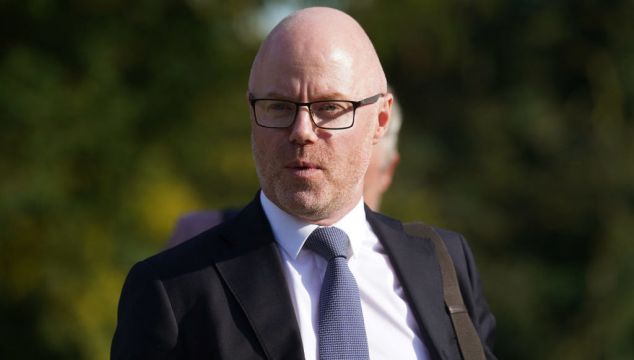Minister for Health Stephen Donnelly says work has begun this week to set up a dedicated paediatric spinal surgery unit.
He said the unit would ensure there are dedicated beds and healthcare workers so that urgent surgeries take place in a timely manner.
He also said he was “not satisfied” that millions of euro in funding given in 2022 was used solely for orthopaedic and spinal care, after waiting times for children in need of spinal surgery did not reduce dramatically.
“I was given a plan that showed the total number of children waiting more than four months coming to zero, that was our target,” he said on Wednesday at the launch of a report to improve work conditions for junior doctors.
“What did happen was that the number of surgeries went way up, which is very welcome. But the number of children waiting has not gone anywhere near zero. It did fall last year, there was a modest fall of 13 per cent.
“What we saw was a lot of additional referrals onto the waiting lists, and as I said in committee two weeks ago, I am not fully satisfied that the €19 million that I allocated has been deployed clearly for the use of orthopaedic and spinal care.
“Based on the conversations I’ve had, I’m not satisfied that €19 million has been spent entirely in the way that I very clearly articulated it should be spent.”
He added: “We have to deal with the fact that too many children are waiting for complex spinal work, sometimes for less complex spinal work or for non-spinal, orthopaedic work.”
He said that after a recent meeting with surgeons, who referenced centres in Stockholm and elsewhere, they recommended a dedicated spinal surgery unit for children be established.
He wrote on Tuesday morning to the advocacy groups to inform them that a taskforce is being set up, similar to the CervicalCheck Steering Group.
He has also asked HSE chief executive Bernard Gloster to appoint a senior full-time programme manager to ensure “end-to-end implementation of this plan” to reduce child spinal waiting lists.
Dedicated theatre
He said: “Following the meeting with the Taoiseach and the advocacy groups, I met privately with several of the surgeons, and we sat down and said ‘how do we fix this on behalf of children?’ and their recommendation was a dedicated spinal service.
“What does that mean? It means for the spinal service rather than looking for time in theatres, with theatre nurses who may not have specialism in spine, looking for high dependency beds, post-operative, looking to try and get ward beds, we would have a dedicated service.
“Dedicated theatre, dedicated theatre staff and anaesthetists, dedicated recovery beds, high dependency beds, ICU beds if that’s what’s needed, and dedicated hospital beds that cannot be used by other parts of the service.
“I was very happy to see we have an eminent, hugely experienced surgeon, Mr David Moore, who has agreed to be the clinic lead, and we’re now putting a team around him, one or two who have started this week.”
He added: “Another thing I’m looking to do is to put in place end-to-end funding for any family that wants to avail of care abroad.
“What we’re aiming for is that no family would ever need to go abroad, but given the small size of our country and the highly specialist nature of this, there are opportunities in some cases for children and their families to get care abroad.”
He said: “We want to bring the waiting list down quickly and the waiting times down quickly. I’m not remotely satisfied with the amount of time that these children are having to wait.
“And as we bring down the waiting times, establish a fully dedicated paediatric spine service now, before we move into the National Children’s Hospital, then obviously we transition that into the National Children’s Hospital and make sure that these are the last children who are failed by their state and by their health service.”
Renewed focus was put on the issue of long waiting lists for children in need of spinal surgeries after a number of serious spinal surgery incidents were reported, relating to the care provided by one consultant at Children’s Health Ireland, Temple Street.
The consultant is no longer conducting surgeries, the HSE confirmed in September.
The review into the poor spinal surgery outcomes at CHI at Temple Street is being led by Selvadurai Nayagam, a consultant in orthopaedics and trauma at the Royal Liverpool University and Children’s Hospitals.
Mr Donnelly confirmed on Wednesday that Mr Nayagam’s independent review would be delayed as 17 cases of concern had been added.
He said he had given Mr Nayagam’s review “carte blanche” to investigate the issue and was fully supportive of new cases being added.







